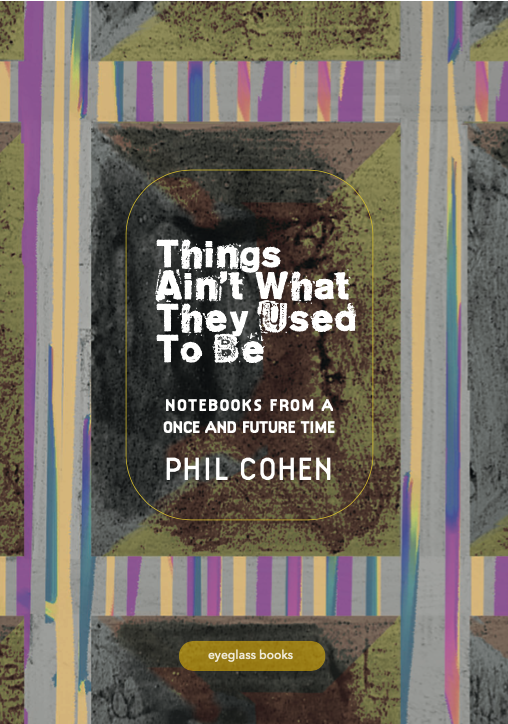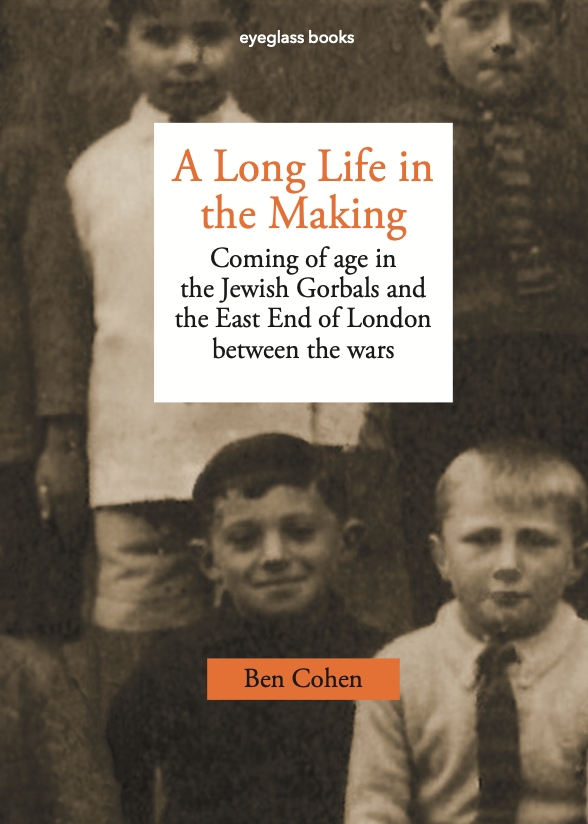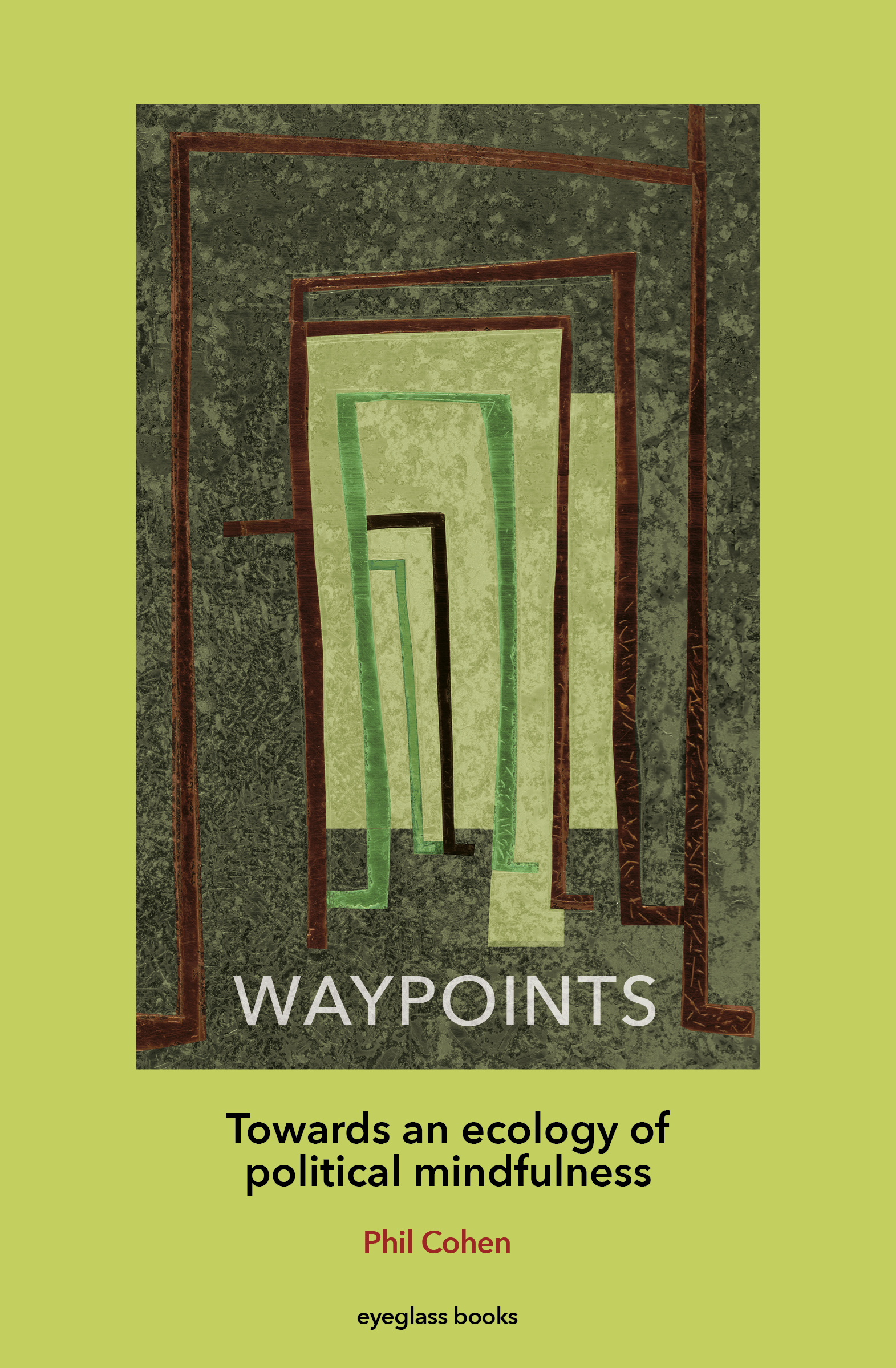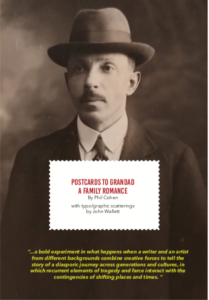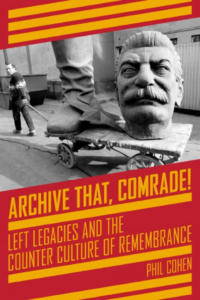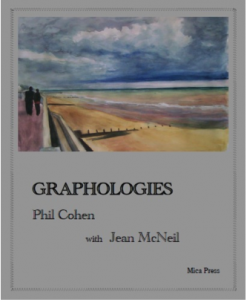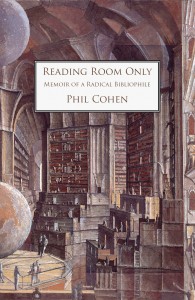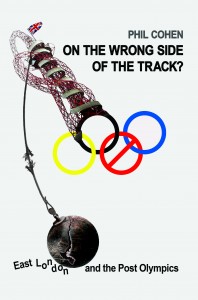Some reflections on the Dissident Academy
Text of a Talk given to the Social Sciences faculty of Melbourne University November 2018
INTRODUCTION : WHERE WE ARE NOW AND HOW WE GOT HERE
The recent decision by the Federal minister for education to block a number of major grants for research in the arts and humanities has been greeted with howls of outrage from what remains of the Dissident Academy in Australia and a smug silence by those university authorities who are grateful to the politicians for doing their dirty work for them.
But how have we got to a situation where it is possible for the media to plausibly construct the Dissident Academy as the home of a privileged cultural and intellectual elite whose contempt for people less highly educated than themselves is thinly disguised by their Leftist rhetorics and who pursue a self indulgent quest for knowledge which is quite useless to the wider society and economy. And then to add insult to injury they are accused of wingeing on about working conditions which, although increasingly precarious, are still considerably better than those experienced by a good many people who do not have a university degree.
Captured in the distorting mirror of populist rhetoric which turns the world of power upside down only the better to ensure that its structures in dominance survive, the present debate about the future of the university – does it have one- has got tangled up in a parallel debate about whether the Left itself can survive the demise of one of its last bastions. The irony here is that the casualization of mental labour, in particular the re-organisation of much academic teaching according to the post fordist logic of the gig economy, has brought a whole generation of students and wannabe academics much closer to the situation of their working class peers, but without creating the conditions which would make a worker/student alliance possible – thus summoning up the ghost of 1968, whose half centenary has been commemorated so widely this year. Yet, this is a ghost which no longer evokes the spectre – or even the spectacle- of social revolution which so haunted the political class across the western world in those years, as they saw their children rebelling against the mantle of power and privilege which they wanted to hand on to them.
Instead we have the phenomenon of ‘generation rent’ whose frustration at being blocked from achieving middle class norms of home ownership and professional career has found political expression, at least in the UK in powerfully renewing the mass party of Social Democracy, at precisely the point in which its historical expression in the institutions of the labour movement has collapsed. Momentum is not however a student or even post grad student movement, even if many of its recruits come from that demographic. Unlike 1968 it is not concerned with challenging the dominant apparatus of knowledge power as such or renewing the Dissident Academy as a site for contesting the hegemony of bourgeois ideas. Rather within the arts, humanities and social science departments, where many of these post grad students are concentrated, political frustrations are sublimated in a rhetoric of pseudo -radicalism informed by the jargon of poststructuralism, and to varying degrees linked to sometimes progressive, sometimes toxic forms of identity politics. This is accompanied by a pseudo- academic discourse which slavishly conforms to ever more elaborate protocols of scholarship which are fetishized to the point where every statement has to be authorized by the deferential citation of work by members of the professoriat, to whose ranks these students still aspire and whose patronage may be decisive if they are ever to reach the once promised land of tenured status. The result is a research culture which is superficially challenging of the corporate structures of the global knowledge economy but deeply implicated in the survival of its academic foundations– thus making the erstwhile Dissenting Academy a perfect target for populist attack.
Now in order to think how we might get out of the tight corner in which we are currently being boxed, I think we have to tell some of the back story of how we got there. For this purpose I am going to draw on my own back story and revisit and update something I wrote (in New Formations 88) in 2004 about the changing nature of intellectual work.
EVERYONE NEEDS A PLACE TO THINK
Susan Sontag does it in Times square, Ian McEwan does it in the Chilterns. Naomi Klein does it on horseback. Archimedes did it in the bath and a lot of people I know say they do it on the loo. Everyone needs a place to think, but none of the ads in a recent advertising campaign for a BBC series about role of intellectuals in society, which used this strapline, featured anyone doing it in Academia. All the people chosen were public intellectuals, they were well known writers, artists, musicians, or cultural commentators, some may have had academic affiliations, or credentials chosen because of that.ut none of them were academics as such. Unsurprisingly they were also extremely photogenic. And sharply dressed. In the era of what Regis Debray has called the Mediocracy, the dishevelled egghead look (aka John Bayley, Richard Feynman or Slavov Zizek ) is definitely out. Now that iconography has replaced ideology in the public authorisation of ideas you have, it seems, to be a fully fledged knowledge power dresser to stand a chance of getting your arguments across to a public wider than your immediate intellectual peers. This shift towards the impression management of knowledge and its implication for sustaining some kind of critical intellectual practice inside and outside the university is one of the themes I want to address.
There is another more material aspect to this. One of the commonest refrains amongst academics is that they can never get any ‘work’ done when they go into work. In other words they are so busy and stressed out by ever increasing teaching and admin loads that they literally have no time or place to think – let alone to do anything approximating sustained research. That is saved up for ‘the sabbatical’. The sabbatical has become the holy grail of Academic Life – the promised land where all the ideas that have laid dormant will come to fruition, all the scattered fragments of writing will be brought together into a coherent whole, and the sabbatee will return to the academic treadmill refreshed and with a renewed sense of intellectual purpose.
The reality is somewhat different. The original meaning of the sabbatical from the Hebrew Sabat entailed the principle that one year in seven the field lies fallow, so that it may be more productive on the eighth. And indeed the notion of a latency period in the gestation of ideas is one that is strongly endorsed by research into the nature of creativity. However, the groves of Academe have long ago been cut down to make way for the multi-site, potentially 24/7 campus. These days sabbaticals are definitely not about lying fallow; they are part of the ‘publish or perish’ ethos which has come to dominate so much of our intellectual life. So we have a university research culture held together by the desire to get the hell out of the university into some kind of privatized sanctuary where there is, at last, time and space to think. Yet once people get there they often promptly collapse into lethargy or ill health, bodies and minds so addicted to the routine stress of academic life that they simply cannot cope with its sudden absence.
Of course there are always individuals who successfully buck these trends. We all know colleagues who are productive in ways that go far beyond what could ever be measured by the audit culture and the Research Assessment Exercise (RAE), whose interests combine breadth and depth in a way that both contributes to disciplinary innovation and opens up conversations between disciplines and who combine the avocations of the public intellectual and private scholar. But the question is why are they so few and far between and getting scarcer by the year? What is it about the way our universities are currently organised that militates against sustaining a culture of true intellectual innovation and political engagement?
As soon as we ask a question like that, one of the traps we can fall into is thinking that at some point, once upon a time, things were a lot different and better. Someone is sure to start talking about the great lost idea of the university as a community of scholars. Colin Leys in his essay on the topic in his ‘House of Uselessness, argues that academics should take back control of the university from the business people and bureaucrats who presently run it, precisely in order to produce knowledge which is unashamedly entirely useless for the purposes of capital and the state. And indeed for society in general, since he wants to argue that the value of knowledge is never in its application, or utility, but should be produced for its own sake in the disinterested pursuit of truth.
Now before we get too excited about the prospect of returning to some post modern equivalent of the pre-modern community of scholars let us remember that so called blue sky thinking is precisely what the knowledge managerialists who have taken up residence in the boardrooms of global capitalism want most of all. And this is not exactly new. My best friend at Cambridge in the 1960s got a First in Classics and a special prize for his translation of Euripides’ Ion, and then promptly went off to work for a leading advertising agency, where after sitting around lying fallow for about six months he leapt to sudden fame and fortune by coining the slogan ‘For Mash eat Smash’ for a new line in instant spuds. All of which goes to show that being a whizz at verse in a dead language at an ancient university will put you at the cutting edge of consumer capitalism in less time than it takes to boil a real potato. When the Bank of England, British Gas and HSBC send their top executives to learn the Whirling Dervish Dance so as to find inner peace and increase their business acumen, when the American Indian Medicine Wheel is used to take pension fund managers on an existential journey to discover their spiritual, emotional and creative selves, or Lao Tzu’s Art of War serves as the basis for a best selling handbook on sales technique, then it is not surprising to find that the image of a community of scholars grubbing away in some obscure archive to make intellectual mountains out of textual molehills, should have a certain sentimental appeal for todays hard pressed academics.
THE GRAMMARS OF UN/KNOWING
One way of tracking the genealogy of intellectual work and its current crisis is to specify the shifting codes which connect particular ways of knowing objects to certain kinds of ‘knowing subjects’ within defined communities of practice. How the world is known through, for example, physics, biology or anthropology constructs iterative webs of story telling about procedures (alias methodologies) that intimately shape the identities of those who work within these frameworks. This process is not just bio- but ethno- and historiographically specific; in other words it bears not only on the trajectory of individual lines of thought, but on particular cultures of enquiry, on the history of disciplines, and on what we might call knowledge’s Other Scenes.
So for example we could begin by distinguishing the founding place of the scholar, ensconced in his or her study in terms of the pursuit of a hermeneutics of vocation s derived ultimately from the mediaeval scholastics. This is a research strategy governed by a quasi-spiritual quest for truths contained within a corpus of texts. The practice of reading here becomes a special form of apprenticeship to inherited wisdoms. The drive is not to produce new ideas, but to interrogate old ones, to bring them alive and reinterpret them in the light of contemporary circumstance. Historically we have the model of the Talmudic or Koranic scholar. More recently we have seen the emergence of a secular equivalent: the poststructuralist who pores over once sacred texts in order to unravel their mysteries, whether by reading between the lines or by challenging their canonical status. Yet despite the fact that the power of divination has been decisively transferred from text to reader, and thence from the process of authorship to the context of reception, the focus of innovation is still on interpretative strategy as such. From this vantage point nothing new ever happens outside the text and its representation.
In contrast, the romantic movement and its successor avant gardes privilege the vocation of the writer or intellectual as the site of a direct, textually unmediated, encounter between creative individual and phenomenal world. The existential quest for authenticity and truth may be turned inwards to a ranscendental self invented as a medium of genial inspiration; or it may be extraverted towards the Other as site or source of exotic curiosity. In either case what the encounter produces is a shock of the new – new ideas, new cultural texts that challenge the inherited corpus, and forms of engagement with the real in which the desire to know no longer depends for its satisfaction on iterative methods of reading.
Today, the sense of scholarly apprenticeship and creative vocation is mired in the decidedly more profane drives of professional ambition and career. The disciplines of reading are increasingly subsumed under the pursuit of discipleship, the formation of rival schools of interpretation centred not just on canonical texts but on iconic authors. Under the imprimatur of the career code the main way to make your way up the ladder is to align yourself with a particular clique centred around a ‘big name’ brand and to demonstrate that you have mastered its distinctive style and ethos. Initiation and ingratiation here become merged in a single write of passage, typically these days in the coming out of your first publication in a peer reviewed journal.
At a personal rather than institutional level, the tension between vocation and career, or apprenticeship and inheritance can still constitute a major moral dilemma: whether it is nobler in the mind to hold to the difficult path of independent craftsmanship or creative endeavour and run the risk of falling out of favour with the intellectual fashion houses; or whether it is more sensible to make your fortune by outgunning or outrunning your fellow bratpackers, and by opposing, join them, that is the question on which many a memoir of the ‘self made’ writer and intellectual turns.
But however well this works as a dramatic device the terms of the dilemma itself are rapidly becoming obsolete. In Academe today the introduction of short-term teaching and research contracts is rapidly dismantling a career structure founded on collegiate loyalty or sustained reputation. The advent of the ‘scholar entrepreneur’ as a role model for young aspirants is one sign of these new times. The aim of holding down any academic post now becomes to accumulate as much intellectual capital as one can as quickly as possible in order to move on and transfer it to another more prestigious and better paying institution before the contract runs out. It really is a treadmill, on which young academics have to run faster and faster in order to stay in the same place.
So the question now is how far is it possible for wannabe academics or writers to still pursue a ‘career’ as a horses for courses race to the top despite the absence of a stable structure? Or do we have to adopt the other sense of the word – careering about from project to project, reinventing ourselves as we go, in grotesque parody of Marx’s vision of what the world would be like when people controlled their own destinies?
The answer has been given in practice by the emergence of a new lumpen intelligentsia straddling casualised academic labour and the new Grub Street of portfolio working in the so called creative industries. How far this will become an effective political force remains to be seen, though the signs so far are not very encouraging.
THE RISE AND FALL OF THE POSTMODERN ACADEMY
The inspiration for this talk – and its title- came from re-reading a once famous, now largely forgotten text by John O’Neil written in 1970 and published in a book entitled Sociology as a skin trade. In his introduction, which he calls a Conclusion, O’Neil notes the paradox of ‘the enormous accumulation of social scientific knowledge and publication which accompanies a failure of political nerve. Sociologists, he complains no longer have skin in the game, that is they are no longer personally invested in particular political outcomes of their work, only professional ones. Or as one famous criminologist once said to me a propos his study of Borstal boys ‘ its terrible what happens to these lads, the problem is to make something sociologically interesting about it’. In other words the essential task is to produce research knowledge which will be recognized by professional sociologists as a contribution to their field. Nowadays, of course that is not enough. In the era of evidence based policy making the social sciences have had to justify their research funding by demonstrating the potential impact of their findings on a whole array of extra-academic enterprises , which has led to a whole new apparatus of knowledge impression management. In contrast, John O’Neil’s vision for sociology was that it should provide an intellectual homing device for student radicals of the 68 generation and provide them with the conceptual and methodological tools they need to develop effective strategies of social transformation as they fan out from the university into the institutions of state and civil society.
Now interestingly one thing that prevented this happening more than it did was the emergence of cultural studies as an alternative pole of attraction for radical students. In One Market Under God Thomas Frank has shown us how the values and even institutions of 1960s counter culture came to power the creative industries of the 1980s.In the late 1970s, in the spaces first opened up and then evacuated by the revival of Marxian political economy, postmodern philosophy developed its critique of knowledge power and the aestheticisation of everyday life. The postmodern turn coincided with the emergence of Cultural Studies as a new academic configuration, and the fate of the two has been closely bound up ever since. ‘Po-Mo’ enabled Cultural Studies to edge out the longer established – and hence ideologically compromised – ‘Humboldian’ disciplines. At the same time Po-Mo connected Cultural Studies to wider developments within the visual arts, literature and the media which were crystallising into a market oriented cultural economy outside the university.
There was another sense in which Cultural Studies provided a bridge between the new knowledge paradigm and global economic imperatives. It was not an inter-disciplinary project in the strict sense in so far as it did not issue from any argument between or within disciplines that studied culture (that is to say, anthropology, history, sociology, linguistics, literature, and psychology). Rather CS opportunistically appropriated (some would say cannibalised) discursive elements from each and all of these intellectual traditions (especially literature and anthropology) and integrated them syncretically into a common syntax focussed around a set of ideological topics or themes. This fitted in well with the priorities of the new academic enterprise culture in so far as topic focused studies lent themselves to niche marketing. So Gender Studies, Womens Studies, Gay or Queer Studies, Environmental Studies, Post Colonial Studies, Race and Ethnicity Studies and their attendant bodies of critical knowledge, that had emerged from the intellectual and political ferment of 1968, all could find their institutional niches within the neo-liberal university during its initial expansionist phase. In principle, of course, postmodernism challenged the foundations of pedagogic authority. A hermeneutics of generalised suspicion regarding the proclaimed truth of texts, once transferred to an educational context tends to undermine faith in all sources of received wisdom. Logically the pedagogic task becomes to transfer to students the critical skills needed to de-mystify or de-construct the subtext of what they are being taught, including the works of post structuralists. Some of the more radical exponents of Po-Mo did in fact try to do just this, albeit in forms of argumentation of such theoretical density as to render them largely unintelligible to their intended student audience!
In practice Cultural Studies helped to institutionalise postmodernism as a corpus of texts to be studied within the Academy, thus neutralising its more subversive pedagogic implications. Along with this textualisation went a disengagement from empirical, and especially ethnographic research. Conceptually the social was dissolved into its various media of collective representation. Once culture was enclosed within itself, either by being disconnected from the social, or by dissolving the social into it, the way was open to retreat from the politics of situated knowledge in favour of growing involvement with the ideoscapes and mediaflows of the global cultural economy. ‘Have Cultural theory – Will Travel’ became the visiting card of the first fully-fledged intelligentsia to be thrown up by new age capitalism in it’s own image.
None of this was achieved without a prolonged struggle against the ‘old guard’ who held on to Gramsci or Raymond Williams as their guiding lights, but the outcome was never in doubt. The textual turn saw off the critics and walled Cultural Studies up in the library, from whence, some of us have not ceased attempting to liberate it.
To summarise the argument so far: postmodernism far from destroying the authority of the Academy, as some critics warned it might, facilitated its transition from an elite quasi- autonomous institution of national learning into a fully fledged consumer enterprise driven by corporate branding and marketing strategies. Cultural Studies played a key role in this process. Often behind the backs of its most passionate advocates it provided a conduit through which Po-Mo ideas could infiltrate and destabilise the Humboldian curriculum. By powerfully legitimating the bricolage degree in a way which paralleled the strategies of knowledge management being adopted by the new economy, and by developing a style of niche marketing that fitted in with the new academic enterprise culture, CS helped to break the mould set by a more rigid division of academic labour and, however unintentionally and indirectly, opened up the way for the introduction of new structures of university governance based on administrative and commercial priorities rather than academic ones.
CURIOUSER AND CURIOUSER
Alongside the developments I have briefly sketched there runs a counter culture, a counter narrative about the role of intellectuals in society which is worth more of a guided tour than I can manage here. In Europe we might start with the mendicant religious orders of the middle ages, especially the friars whom Gramsci took as his model for the organic intellectual. We might spend some time with the troubadours and wandering scholars, and trace the links between their peregrinations and some of the key itineraries of Renaissance thought. We’d certainly visit Cordoba and listen to the debates between Jewish, Christian and Islamic scholars and scientists for and against Aristotle’s and Plato’s views on the origins of ideas. Later on we might spend time with the Encyclopaedists, or the practitioners of Vico’s gaya scienza, and mend our fences with maverick thinkers who refused to patent their own ideas or respect other peoples intellectual property rights. Coming up to the present we could summon up a whole cast of tricksters, and other intellectual shape shifters who seek to unsettle the distinctions between between the discourses of mind, matter and machine.
For all their differences, and they are a very motley crew, these figures have a number of common characteristics. One is that they travel light, they carry a version of a laboratory and/or library around in their heads without requiring a great deal of institutional apparatus to sustain their work. Unlike the Professor of Sinology in Elias Canetti’s Auto da Fe they do not need someone to unpack the books from their heads so they can sleep at nights, Nor are they dependent on expensive equipment to conduct their experiments because the centre of calculation can be the back of an envelope. They take lines of thought for a walk or a song and dance wherever they happen to be – in a jazz group, or a head to head debate, scribbling in their notebooks, or explaining to children why the earth is not the centre of the universe. They form part of a subterranean tradition which links the history of popular curiosity to the counter intuitive procedures of empirical investigation and is to be found as much in the so called hard sciences – just think of Richard Feynman or Stephen Hawkins – as in the soft.
The second common feature is an attitude of mind towards the world. It amounts to that anti-systemic system of sceptical engagement with the real that Carlo Ginzburg has called the conjectural method. In his brilliant essay on ‘Freud, Morelli and Sherlock Homes’, Ginzberg identifies a set of common semiotic procedures linking the investigative practices of psychoanalysis, pictorial and textual analysis, medical and forensic science, archaeology, ethno-botany, detective stories, and some forms of popular curiosity. In each case an enigmatic and apparently insignificant detail, a footprint, a sudden untoward gesture or throwaway remark, a shard of pottery, a cigarette burn on an armchair, a piece of math or science that does not ‘add up’, is made to take on a specific and highly over-determined significance within a wider but still mysterious framework of meaning. This wider picture is at first entirely unknown, but gradually, through the work of piecing together apparently unrelated fragments the hidden pattern emerges, so that they form a coherent narrative which at its best also explains and dissolves the original mystery in a practically useful or aesthetically satisfying way.
In his book, Serres critiques the current shift from the journey to the destination (alias the performance indicator) as the telos of education, a shift which has transformed the pedagogue from an intellectual guide and mentor to what the current OED entry variously describes as: a preceptor, usually with negative connotations: a dogmatist, or in J.S. Mill’s famous term: a member of the pedantocracy. In other words someone who tells but no longer shows. Serres argues that we need to return to the original Greek meaning of the word pedagogy, in a way that makes teaching and research into a single indissoluble intellectual project. In the original Greek meaning of the term the pedagogue is the one who does the school run, who not only takes the student to and from the place of instruction, but who makes the journey itself into an educational experience: not going in a straight line from A to B, but wandering off the beaten track, challenging assumptions, questioning everything that makes you feel at home even and especially in your own sense of alienation or otherness. Attempting to return pedagogy to its founding moment Serres writes to his imaginary student, his reader, in thefollowing terms, which resonate strongly with the intellectual ferment of 1968:
‘Study, work, something will always come of it. And after? For there to be an after, I mean some kind of future that goes beyond a copy, leave the library – to run in the fresh air.If you remain inside you will never write anything but books made of books. That knowledge, excellent in itself, contributes to instruction, but the goal of the other kind is something other than itself. Depart, go out, become many, brave the outside world, split off somewhere else. These are the first foreign things, the varieties of alterity, initial means of being exposed. For there is no learning without exposure, often dangerous, to foreign things.’
References and further reading
Elias Canetti Auto da Fe
Carlo Ginzberg ‘Freud,Morelli and Sherlock Holmes’ History Workshop Journal 9
Richard Hil Whackademia
Richard Feynman Surely You Must be joking,Mr Feynman
J-F Lyotard The Post Modern Condition
John O’Neil Sociology as a Skin trade
New Formations 53 On Intellectual Work
Michel Serres The Troubadours of Knowledge
